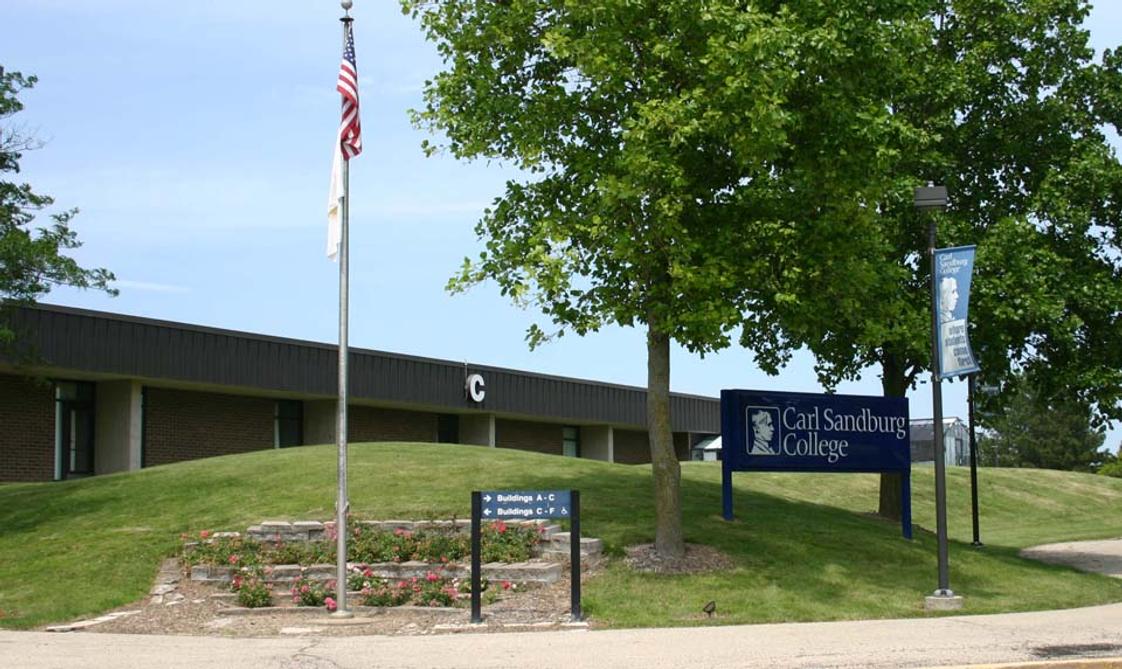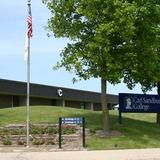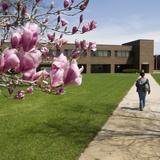- The mission of Carl Sandburg College is to provide accessible, quality education in a caring environment by keeping the learner's needs at the center of decision making and by working in partnership with communities of the College district.
School Highlights
Carl Sandburg College serves 2,295 students (35% of students are full-time).
The college's student-teacher ratio of 10:1 is lower than the state community college average of 21:1.
Minority enrollment is 28% of the student body (majority Hispanic), which is less than the state average of 53%.
Quick Facts (2026)
- Enrollment: 2,295 students
- In-state tuition: $5,846
- Out-state tuition: $6,854
- Student-teacher ratio: 10:1
- Minority enrollment: 28%
- Source: Integrated Postsecondary Education Data System (IPEDS)
Top Rankings
Carl Sandburg College ranks among the top 20% of public schools in Illinois for:
Category
Attribute
Affordability
School Resources
Debt For Students
School Overview
The teacher population of 227 teachers has stayed relatively flat over five years.
Carl Sandburg College
(IL) Community College Avg.
Carnegie Classification
Associate's Colleges: High Transfer-Mixed Traditional/Nontraditional
Associate's Colleges: Mixed Transfer/Career & Technical-High Nontraditional
Institution Level
Less than 2 yrs
At least 2 but less than 4 years
Institution Control
Public
Public
Total Faculty
227 staff
239 staff
School Calendar
Student Body
The student population of Carl Sandburg College has grown by 30% over five years.
The student-teacher ratio of 10:1 has decreased from 24:1 over five years.
The Carl Sandburg College diversity score of 0.46 is less than the state average of 0.69. The school's diversity has grown by 16% over five years.
Total Enrollment
2,295 students
3,838 students
Student-Teacher Ratio
10:1
21:1
# Full-Time Students
794 students
1,091 students
# Part-Time Students
1,501 students
2,747 students
# Enrollment Undergraduate
229 students
328 students
# Full-Time Undergraduate Students
794 students
1,091 students
# Full-Time Graduate Students
n/a
43 students
# Part-Time Undergraduate Students
n/a
3,310 students
# Part-Time Graduate Students
n/a
18 students
Total Dormitory Capacity
n/a
132 students
% American Indian/Alaskan
n/a
n/a
% Asian
1%
6%
% Hispanic
11%
26%
% Black
7%
13%
% White
72%
47%
% Hawaiian
n/a
n/a
% Two or more races
4%
3%
% Non Resident races
n/a
1%
% Unknown races
4%
4%
Diversity Score
0.46
0.69
College Completion Rate (Students who graduate in less than 4 years)
43%
40%
College Completion Rate (Students who graduate in 4 years or more than 4 years)
n/a
55%
Average Graduate Earnings (10 Years)
$29,700
$31,800
Tuition and Acceptance Rate
The public in-state tuition of $5,846 is less than the state average of $7,875. The in-state tuition has declined by 18% over four years.
The public out-state tuition of $6,854 is less than the state average of $10,847. The out-state tuition has declined by 14% over four years.
In-State Tuition Fees
$5,846
$7,875
Out-State Tuition Fees
$6,854
$10,847
Tuition Notes
$178 per credit hour
% Students Receiving Some Financial Aid
99%
81%
Median Debt for Graduates
$4,500
$8,029
Median Debt for Dropouts
$3,500
$4,618
Acceptance Rate
n/a
89%
SAT Reading
n/a
390
SAT Math
n/a
360
SAT Writing
n/a
355
ACT Composite
n/a
17
ACT English
n/a
17
ACT Math
n/a
17
Source: 2024 (or latest year available) Integrated Postsecondary Education Data System (IPEDS) , School Administrators
School Notes
- Carl Sandburg College was established by authority of the Illinois Community College Act of 1965 and was approved by voters in a September 1966 referendum. One year later, in September 1967, classes began at various locations in Galesburg, including the former Brown's Business College and the Central Congregational Church. Enrollment was approximately 350 students. The Main Campus is located in Galesburg with a Branch Campus in Carthage and an Extension Center in Bushnell. In addition, off-campus sites include the Educational Technology Center and the Annex in downtown Galesburg, as well as the Education Commons in Carthage. A WIDE VARIETY OF PROGRAMS leading to degrees and certificates is offered by the College to serve a variety of student needs. The Associate in Arts (AA), Associate in Science (AS), or Associate in Fine Arts (AFA) degree is for those students planning to transfer to a senior college or university to earn a Baccalaureate degree. Carl Sandburg is participating with other two and four year Illinois College and Universities to list a core curriculum. Occupational programs are available as a Certificate, which may be completed in as little as nine months, or as an Associate in Applied Science degree, which may be completed in as little as two years. Accredited by North Central Association of Colleges and Schools Commission on Institutions of Higher Education.
Frequently Asked Questions
How much does Carl Sandburg College cost?
Carl Sandburg College's tuition is approximately $5,846 for In-State students and $6,854 for Out-State students.
What is Carl Sandburg College's ranking?
Carl Sandburg College ranks among the top 20% of community college in Illinois for: Least expensive tuition, Percent of students receiving financial aid and Least debt for graduating students.
Recent Articles

5 Key Community College Trends Parents Should Know in 2026
Explore major 2026 community college trends including enrollment changes, costs, career programs, and affordability for parents planning college decisions.

Average Community College Tuition Cost 2026 Update
Explore updated 2026 community college tuition averages, cost trends, planning tips, admissions timing advice, and financial strategies for families and students.

Preparing for Placement Tests in 2026: Student Guide
Preparing for Placement Tests in 2026, what students, parents, and educators need to know about formats, prep strategies, and placement changes.

















